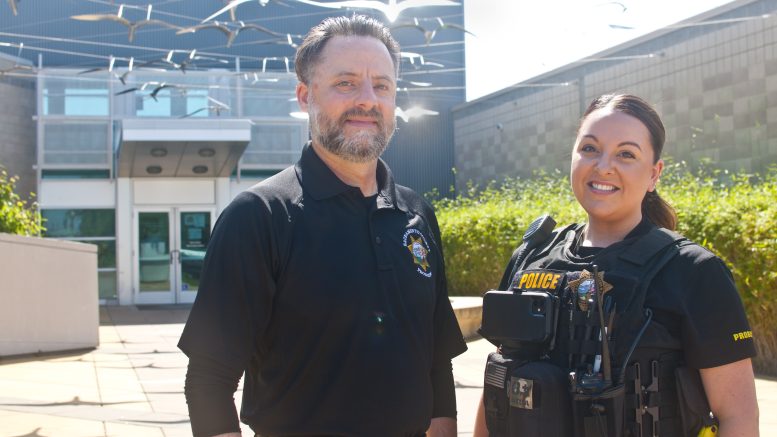Supporting Positive Change.
You’ll find these three words on the walls of the Sacramento County Probation Department’s offices and the homepage of their website. And if you talk to any of the 700 employees working within the department, it won’t be long before you’ll hear them invoke the phrase. It’s been the department’s motto for over seven years now, and it embodies their philosophy of rehabilitation over punishment.
“I always tell my clients, ‘I’m not here to hold you down. I’m here to lift you up.’” says Adara Munoz, Deputy Probation Officer. “Our main goal is to meet them where they’re at and support them to get to a better spot.”
This is a mission that’s become more complicated lately. Two recent pieces of legislation have changed how the Probation Department operates, specifically with regards to its juvenile clients. The first item extended juvenile services to the age of 25. This ensures that youth are not sent to adult facilities unnecessarily if they violate the terms of their juvenile probation. Instead, they can be returned to their county juvenile hall.
While this demands more resources from a Juvenile Services staff that is already stretched thin, Senior Deputy Officer Jeffrey Rhoades sees it as a positive for the department’s overall mission.
“They’re not being exposed to the adult population, where unfortunately they often get sucked into the system,” says Rhoades. “If they’re already struggling to break away from that mindset, it’s better to put them in an environment they know, as opposed to that new place where they feel like they’ve graduated in some way, shape or form.”
The second piece of legislation was even more impactful. Passed in September 2020, Senate Bill 823 dissolved the state-run Division of Juvenile Justice in favor of a local administrative solution. Previously, youth who committed serious offenses were sent to a DJJ facility in Stockton. Now, each California county is responsible for housing and treating juvenile offenders locally.
“I always tell my clients, ‘I’m not here to hold you down. I’m here to lift you up.’ Our main goal is to meet them where they’re at and support them to get to a better spot.”
Adara Munoz, Deputy Probation Officer
Sacramento County Probation Department
Again, this places more strain on local resources. But again, Rhoades sees it as an aid in supporting positive change.
“We’ve actually been able to bolster the services that we on the re-entry side provide to the youth,” Rhoades says. “With the DJJ population, our time was always limited. But now with them in our backyard, you get to have more detailed, regular interactions.”
It’s these regular interactions that are at the heart of what a probation officer does. From the moment juveniles enter the justice system, probation officers work closely with them, their families, and with the courts to make sure their needs are addressed. Around 70% of youth in the juvenile justice system suffer from mental health disorders. Many more are battling drug addictions, childhood traumas, poverty, lack of education and unemployment. Sacramento County Probation works with partners in the Department of Behavioral Health, the Office of Education, the Northern California Construction Training Program, and the Anti-Recidivism Coalition to address these needs.
But you can’t treat a problem you’re not aware of. This is why regular contact is important.
“The best part of being a field officer is that I’m able to go and meet with my probationers in their homes,” Munoz says. “I get to speak with their siblings, their girlfriends, their grandparents, whoever their close community is. And sometimes I get good information about what they’re really struggling with because it’s hard for a person to admit what is going on with them. Then I can add on services based on the new information that’s given to me.”
This may sound more like a social worker than the traditional conception of a probation officer. But that’s exactly the point.
“When I hear that juvenile justice is punitive, I bristle at that,” Rhoades says. “From what I’ve seen in my roughly 10 years of service, juvenile justice, at least in Sacramento County, has gone from supportive to more supportive.”


























